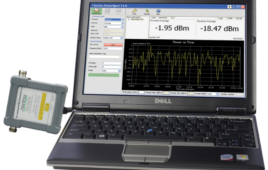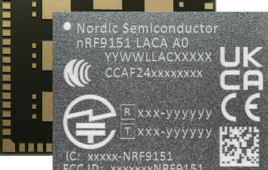 General Micro Systems has Introduced the “Zeus” (SCZ91X), a “super-server” that revolutionizes client-server architecture products available for military systems. The Zeus represents an eight-fold performance improvement over any current products and the unprecedented security of data and operations through a “Trusted Computing Platform.”
General Micro Systems has Introduced the “Zeus” (SCZ91X), a “super-server” that revolutionizes client-server architecture products available for military systems. The Zeus represents an eight-fold performance improvement over any current products and the unprecedented security of data and operations through a “Trusted Computing Platform.” Responding to military and industry needs for a server that can run multiple applications
on different OS simultaneously without interrupting the main processor or operating system, the Zeus replaces dedicated processing systems or single-level servers – and through a Hypervisor or Virtual Machine Manager – can concurrently run numerous, fully independent operating systems (guests).
Handling it all through a Westmere-EP® processor – the most powerful Xeon 5600 processor from Intel — the Zeus is based on six physical CPU cores, with hyperthreading for a total of 12 cores. Each core operates at up to 2.4 GHz, with the ability to run in TurboBoost mode up to 2.67 GHz. Each guest, as well as the core, is assured uninterrupted operation through the integration of the Westmere-EP with its fully integrated memory controller and massive high-speed memory.
The Zeus boasts up to 96 Gbytes of RAM organized in three banks. Each RAM bank consists of two DDR-3 DIMM arrays with Error Correcting Code (ECC). The ECC RAM supports up to 1333 Mega Transfers per Second (MTS) to/from the CPU, which is the fastest random access memory rate per second in the industry.
Accommodating the widest array of ultra-high-speed I/O devices, the Zeus comprises a host CPU I/O and six Virtual Machine I/O (VMIO) sites, several of which are available as standards. Two removable 2.5” SSD drives are supported on the host side, as well as one PMC/XMC site and one mSATA drive for a local boot device.
Configured as “share nothing” architecture, each VMIO site is fully independent and is connected to the host CPU via PCI-Express lanes only. (If one I/O input is struck by lightning, for example, all the other channels are unaffected.) All I/O transactions are fully monitored through the TPM/TXT/VT-x security engines to assure access is authorized by the host CPU. VMIO connections to the Zeus are through 38999 military connectors.
While GMS has engineered the Zeus for highest possible performance in a rugged server, it also ensures optimum security through its “Trusted Computing Platform.” At the philosophy’s
center is the “Trusted Platform Module,” (TPM) a hardware-based specification that can be used to encrypt or scramble data, enabling the “sealing” of applications and even an entire operating system. The TPM can also encrypt the system’s configuration, allowing it to pick up on any unsecure devices, and block the computer from starting if one is detected.
“Some branches of the U.S. government are now requiring TPMs on any new systems purchased. GMS is behind this 100 percent, since we are committed to protecting the data and operations owned by our customers,” says Ben Sharfi, CEO of GMS. “With the Zeus we’ve taken the computing platform to the next level. It is absolutely critical that each and every time a system is turned on, that nothing has changed since its last use. This security is provided in the Zeus – making it a true ‘Trusted Computing Platform.’”
The first fully rugged server in the industry, the Zeus is designed to provide the highest level of server-class performance possible in a ruggedized, conduction-cooled system, operating -40°C to +85°C at full load. With conformal coating, the Zeus is unaffected by salt, fog, humidity, fungus and rain; is shock-proof; vibration-proof; and engineered for altitude, all per Mil-Std 810G.
The Zeus supports the most common Hypervisors by VMware, WindRiver and Microsoft, and can be shipped with operating systems such as Windows® 7, Linux® and VXWorks® already installed.
For more information regarding GMS products please visit www.gms4sbc.com.
April 16, 2012




